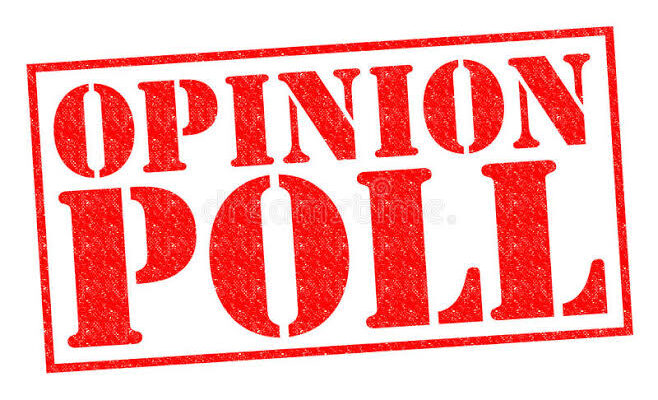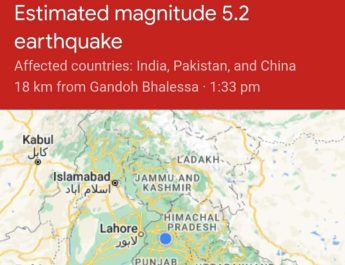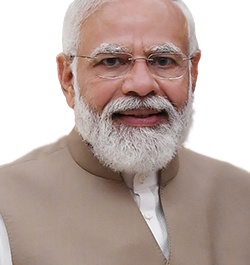From Our Bureau
NEW DELHI: A dissertation from the University of Gothenburg, for which the author studied presidential elections around the world among other things, shows that the closer the race appeared to be in the opinion polls before the elections, the greater the risks for manipulation and electoral fraud. However, opinion polls don’t only influence politicians to undermine the integrity of elections. They also affect how people vote.
A healthy democracy has competitive elections where at least two candidates or parties have a good chance of winning. Previous research has shown that the political effects of this type of elections are positive. If a government is likely to lose the next elections, it is encouraged to work harder, perform better and thereby deliver more to the voters.
However, competitive elections have a darker side, particularly in more recent democracies with less stable public institutions.
“The uncertainty that arises when an election appears to be very close can lead politicians to undermine the integrity of the elections in order to increase their own chances of victory. I’m interested in how close elections can actually be detrimental to democracy,” says the author of the thesis, Stephen Dawson.
Competitors can win in an undemocratic way
He has studied the relationship between political competition, how politicians and voters perceive that competition, and the integrity of elections. Part of his study is based on data from 109 presidential elections around the world between 1996 and 2016, and local elections in South Africa in 2016. Stephen Dawson analysed whether the prevalence of electoral fraud and vote buying has anything to do with the outcomes of opinion polls and previous election results.
The results of his study show that the risk for electoral fraud and vote buying increased in countries where the polls and previous results indicate a close race in an election, where several candidates had a realistic chance of winning. One example is the elections in Honduras in 2013.
“The opinion polls initially showed even numbers, but the election was tarnished with accusations of many attempts to manipulate the process, which eventually resulted in a comfortable election victory for the incumbent party. The bottom line is that even if an election appears to be highly democratic in the sense that it is competitive, competitors can win in an undemocratic way.”
False information negative for the behaviours of voters
Other manipulative strategies, such as disrupting the opposition early in the election campaign, can reduce the need for electoral fraud and vote buying, thus giving the impression that the elections have been free and fair. But political competition doesn’t only affect politicians. Many voters at least in part base their decisions on the relative popularity of the candidates.
One example that Stephen Dawson found during his studies was from the 2013 elections in Turkey. At that time, President Erdogan allegedly attempted to have poll numbers manipulated and published in a newspaper before negotiations were to take place with the pro-Kurdish People’s Democratic Party (HDP) in an attempt to influence public opinion.
“Information, often conveyed via the mass media, about who is likely to win or lose the next election is therefore a key component when we think about how fair an election is. If the information is false, it can have negative consequences for how and if a person votes because the media is involved in shaping the attitudes and behaviours of voters.”
The media has a great responsibility
The fact that the electoral behaviour of voters is influenced by what they perceive the state of the political competition to be makes it more important to monitor now than ever before. During election campaigns, people are exposed to an increasing amount of information that is of varying quality. For example, the UN has warned against the threat to global electoral integrity. Adding to the problem is how politicians and elected leaders use social media to promote hatred, spread disinformation, and undermine trust in both civil society and state institutions.
“It is incredibly important to monitor how information about the state of the political competition is influenced by political actors during election times. Opinion polls measure political competition. The media therefore play an important role in ensuring that they communicate accurate information about the candidates and the electoral process so that voters’ choices are not adversely affected, and elections are fairly contested.”
Method
The thesis is based on four academic papers:
— In the first paper, 109 presidential elections around the world between 1996 and 2016 were studied. The data came from a combination of expert surveys of the existence of electoral fraud and opinion polls prior to each election.
— The second paper, which studies vote buying in South Africa in 2016, combines a survey of over 3,000 citizens with census data and previous election results.
— The third paper is a qualitative study of elections where the voter turnout dropped significantly – in Kazakhstan in 2005, in Kyrgyzstan in 2011, in Armenia in 2013, and in Georgia in 2008. For this paper, news items were collected that tracked the trends in the election campaigns.
— The fourth paper of the thesis is based on two data collection processes in the metropolitan regions of Turkey in 2020. In total, 3,600 individuals participated in two original online surveys with embedded experiments on the impact of opinion polls on their voting behaviour.





